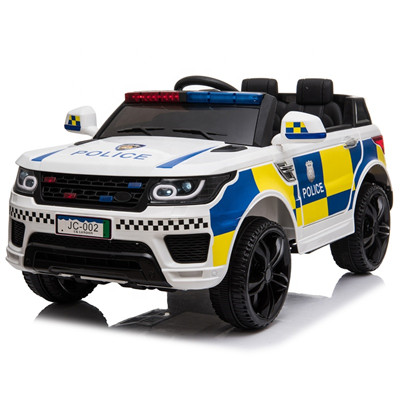In an era where sedentary activities are becoming increasingly prevalent, ride-on cars offer a valuable opportunity to promote physical fitness and active lifestyles among children from a young age. These miniature vehicles not only provide fun and enjoyment but also contribute to the development of essential motor skills and habits that can have lasting effects on a child’s well-being. Let’s explore how ride-on cars play a role in fostering physical fitness and active habits.
1. Active Play: Ride-on cars encourage children to engage in active play outdoors. Operating pedals, steering, and navigating obstacles require physical effort, helping children develop their gross and fine motor skills.
2. Cardiovascular Health: Riding a car involves cardiovascular activity, which contributes to heart health and overall fitness. Engaging in regular physical activity from a young age establishes healthy habits that can be carried into adulthood.
3. Muscle Development: Pushing pedals, steering, and maneuvering the vehicle all contribute to muscle development. Regular use of ride-on cars helps children build strength and coordination.
4. Balance and Coordination: Navigating a ride-on car challenges children’s balance and spatial awareness. These skills are crucial for overall physical development and play a role in various sports and activities.
5. Outdoor Engagement: Ride-on cars entice children to spend time outdoors, engaging with their environment and enjoying the benefits of fresh air and natural sunlight.
6. Screen Time Reduction: Riding a car provides a healthy alternative to screen time. By immersing themselves in active play, children reduce sedentary behavior and contribute to their overall health.
7. Habit Formation: Introducing physical activity through enjoyable experiences like riding a car helps children establish positive habits early in life. These habits can set the foundation for a lifetime of physical fitness.
8. Family Participation: Parents and caregivers can join in the fun by participating in ride-on car activities with their children. This not only promotes family bonding but also demonstrates the importance of staying active as a family unit.
9. Independence: Operating a ride-on car empowers children and fosters a sense of independence. This confidence can extend to other physical activities and encourage a willingness to explore new challenges.
10. Lifelong Well-Being: Engaging in regular physical activity during childhood contributes to overall well-being and health throughout life. By incorporating ride-on cars into playtime, parents and caregivers contribute to their children’s long-term health and happiness.
Ride-on cars serve as more than just playthings; they are tools that promote active play and physical fitness. By providing opportunities for children to move, explore, and engage in physical activities, ride-on cars play a valuable role in nurturing active lifestyles from a young age.


















